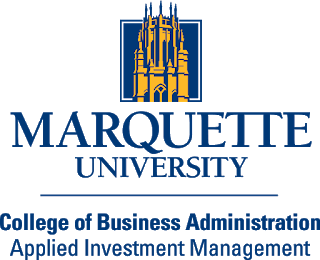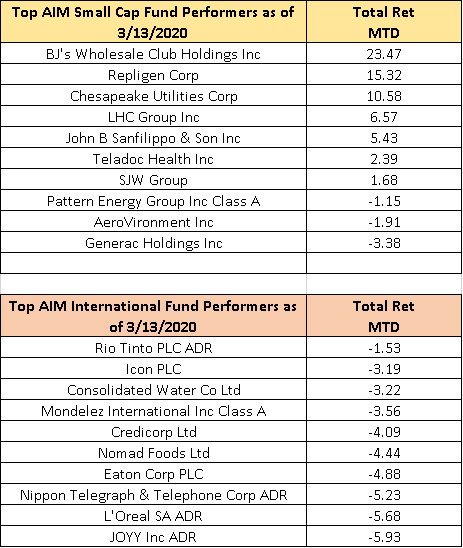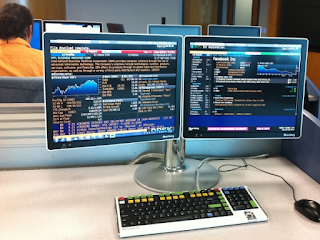Stay the Course!
by Connor Darrow, Marquette Applied Investment program alumnus
March 29, 2020
The coronavirus has obviously been a challenging time for
most. From fighting for toilet paper, to worrying about job security, to
switching to online courses no doubt the coronavirus has already had an impact
and who knows how long it will last.
Amidst this backdrop for many investing
has taken a backseat. In addition to fears of investing, many people have
likely withdrawn investment funds in an effort to navigate the global pandemic.
This has the effect of buying high and selling low as the stock market has
fallen back so sharply. The exact opposite of what investors seek to do. While
it may be a challenging time to stay invested for many it is essential to
remain invested and continue to buy on the dip while considering the broad US
stock market and its history.
No question the U.S. stock market has fallen sharply since
the start of the year. Year to date the S&P has fallen over 20% and most of
this decline has occurred in the past two months (as seen in the graph below).
Goldman Sachs is even predicting a GDP loss of 24% in the second quarter of
2020. The decline can be attributed almost solely to the outbreak of the
coronavirus and the U.S.’s approach to dealing with the crisis.
The U.S. has
seen many states and cities call for a quarantine which has led to a sudden
stop of the economy. According to the department of labor the most recent job
report revealed that 3.28 million people filed for unemployment insurance last
week. This is more than four times higher than ever recorded. These statistics
clearly paint a grim picture and it would not be shocking to see the
unemployment rate go up significantly higher as companies burn through their
cash reserves and about 74% of people live paycheck to paycheck (according to
the department of the American Payroll Association.) And almost three in 10
adults have no emergency savings at all, according to Bankrate’s Latest
Financial Security Index.)
Amidst this backdrop you may wonder why to even
invest.
S&P 500
Yahoo Finance
Given such a sharp decline it is easy to lose faith in the
stock market and calling a bottom is hard to predict. However, with the stock
market having fallen so sharply it is likely that the decline in GDP forecasts
and slowing of the American economy has already been priced into the market. This
means that the stock market is likely nearing a floor and opens a potential
buying opportunity.
History has shown over the past 50 years anytime the stock
market has fallen over 20% in a calendar year the following year has always
seen an increase of over 20% (see the graph below). While it is uncertain if
this stock market decline will perform similarly given the uncertainty of the
duration of the pandemic. History indicates it would be wise to invest in a
declining market.
|
Date
|
Value
|
|
12/31/1974
|
-29.72%
|
|
12/31/1975
|
31.55%
|
|
12/31/2002
|
-23.37%
|
|
12/31/2003
|
26.38%
|
|
12/31/2008
|
-38.49%
|
|
12/31/2009
|
23.45%
|
|
3/27/2020
|
-21.34%
|
The global pandemic is unlikely to last forever and with
economic stimulus recently announced, potential vaccine development, and the summer
on the horizon it is likely better days are coming. I know for many this will
be hard to accomplish with lost income amidst a rise in unemployment but with
two trillion dollars coming in the form of federal stimulus and many Americans
receiving at least $1200 due to recently passed regulation this should provide
some financial security to buy some time and gives hope the economy can limit
the damage until people are able to go back to working. These are all positive
factors that could reignite the U.S. stock market.
Understandably not everyone will have the opportunity to
invest during this time but in a period of uncertainty and a rapidly declining
stock market why not follow history. My advice is to utilize dollar cost
averaging and invest every two weeks if one can. Because while it is impossible
to predict the bottom of the stock market. At least this way you can
potentially buy low and sell high at much cheaper prices. You may not see such
a great buying opportunity again for quite awhile. As Warren Buffett once said,
“We simply attempt to be fearful when others are greedy and to be greedy when
others are fearful.” We too should look to have courage and continue investing
in the stock market.



































